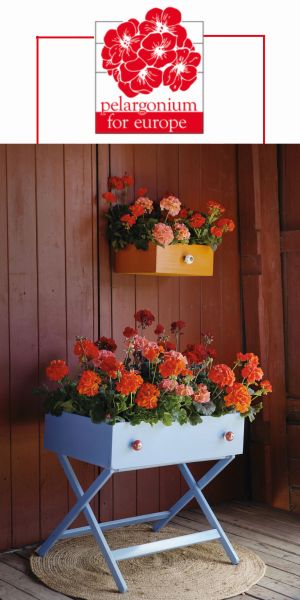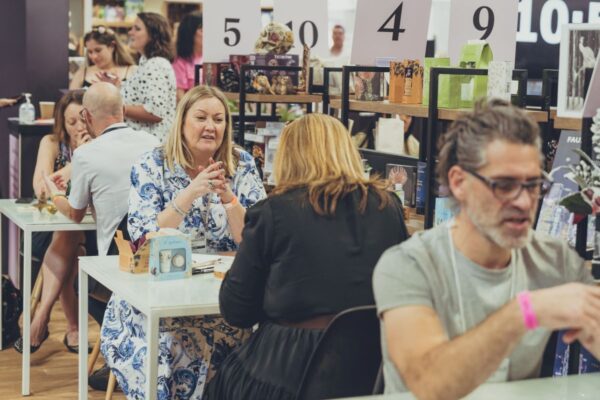 Alan Monahan writes: Since Marks & Spencer announced that it was closing 100 stores over the next four years, the world and his wife seem to have had their say on how the high street can be saved.
Alan Monahan writes: Since Marks & Spencer announced that it was closing 100 stores over the next four years, the world and his wife seem to have had their say on how the high street can be saved.
Well-meaning people are coming out of the woodwork to vow their allegiance to physical stores. Lucy Mangan, as I mentioned in my last piece, wrote in the i newspaper about her Damascene conversion and the ‘restorative, productive, humanising and fun’ experience of going shopping in small independent bricks and mortar shops as opposed to using Amazon.
Her fellow guest columnist, Alexandra Shulman, has also been at it, saying that the role of the store today has to be of entertainment, discovery and experimentation.
She points out that the most successful businesses work with a partnership of clicks and mortar, and that online shopping is still only 17% of the total retail spend – which leaves a lot of incentive to make the most of the shop floor.
But it’s hard to disagree with her assessment that so many of them are identikit, dull and inefficient. ‘The appeal of the farmers’ market shows that if you have things that people actually want, in an environment that they enjoy, they are happy to shell out. Shopping should, and can be, great fun.’
It’s been claimed that retailers worldwide are getting better at keeping step with the demands of today’s always-on, savvy consumers. Yet while shopping satisfaction has improved over the last decade, it would seem that more innovation is required.
The Zebra Technologies’ 2018 Shopper Vision Study – which questioned men and women throughout Europe and the Middle East, North America, Latin America and the Asia Pacific – discovered that one-third of them are still not satisfied with the in-store shopping experience.
The report concludes that retailers must accelerate the pace of change or risk losing sales and market share. Consumers equipped with smartphones expect fast, convenient, information-rich and connected shopping experiences that are uniquely relevant to them in store, online and via their mobile devices.
The study says that consumers have become less tolerant of long-time retail pain points that fail to meet their immediate shopping needs. At the same time, they are increasingly channel agnostic and demand an easy, fast, seamless buying experience, whether that’s online, via a mobile device, in store or using some combination of all three.
Retailers, of whatever size, should note that consumers cite out-of-stock merchandise, difficulty finding an item and unclear pricing and discounting as the leading causes of in-store shopping dissatisfaction. They want retailers that elevate the in-store experience by leveraging technology and knowledgeable sales staff to solve chronic shopping hassles.
They’re looking for retailers to offer solutions such as staff equipped with mobile computers to locate missing inventory, provide options like free home delivery of out-of-stock items, and speed-up the check-out process.
They also want retailers to add curation, inspiration and customisation to the multi-channel shopping experience that transforms the customer-retailer dynamic from merely transactional to service driven and personalised. Shoppers also value assisted-selling technologies that record their purchase history to deliver customised product offers and tailored discounts, for example.
Zebra found that while consumers are demanding a variety of faster product delivery options, many aren’t willing to pay for speedier service. More than a half of those surveyed plan to increase their usage of buy in store, ship from store to home delivery, and expect next-day and same-day delivery options.
 In response, forward-thinking retailers are scrambling to meet these heightened demands by rolling out perks such as reserve online and in-store and curbside pick-up. So, there is still hope for physical stores who have the money and inclination to keep pace with the ever-changing retail scene.
In response, forward-thinking retailers are scrambling to meet these heightened demands by rolling out perks such as reserve online and in-store and curbside pick-up. So, there is still hope for physical stores who have the money and inclination to keep pace with the ever-changing retail scene.
Marks & Spencer was slow to react and while its planned closures may have come as a shock to many shoppers, the writing had been on the wall for a long time: its general offer wasn’t what most people wanted any more. Yes, they may have popped in to buy pants or pies. But M&S, with so much property, was never going to survive in its current state with underwear and food as best sellers.
Meanwhile, the aforementioned Alexandra Schulman isn’t going to let Lauren Greenfield’s upcoming documentary, Generation Wealth – ‘an assault on the values of consumerism’ – get her down. ‘As far as I’m concerned, my country needs me, and others like me, as vital pillars of economic support … I’ve got six parties and a wedding looming – which demand a shopping expedition…’ Go girl! The retailers of Britain salute you.
Barclays has written to tell me that it is closing my local branch in Newport, Shropshire, in September. ‘We are sorry as we know you have found this branch convenient to use,’ it says. Yes, I have.
Barclays will be speaking with customers and contacting members of the local community ‘to understand the concerns they may have when the branch closes’. What tosh. This is called PR – and it won’t wash with local retailers who will no longer be able to pay in their takings in the town. Also, people who visit Newport just to do their banking but make incidental purchases from shops, won’t be doing that when the branch closes.
 We have also recently lost the Post Office as we knew it. That’s now situated in a newsagent’s. Is it any wonder that our high streets are dying?
We have also recently lost the Post Office as we knew it. That’s now situated in a newsagent’s. Is it any wonder that our high streets are dying?
We are moving ever-closer to becoming a cashless society, the perils of which I have already written about. The recent crash of the Visa service and the card chaos that ensued is – coupled with the withdrawal of ATMs and closure of banks – a portent for a Britain that is solely reliant on plastic.












